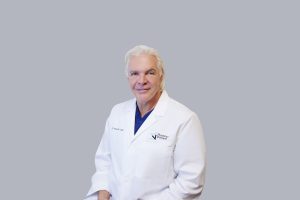James St. Louis, DO, Discusses Minimally Invasive Laser Spine Surgery
 The spine is designed to be strong and flexible, but it’s often a source of back pain. No matter the spinal condition, Physician Partners of America (PPOA) can help.
The spine is designed to be strong and flexible, but it’s often a source of back pain. No matter the spinal condition, Physician Partners of America (PPOA) can help.
With more than 20 clinics across the United States, PPOA treats spine conditions with minimally invasive surgery as well as interventional pain management before and after surgery through methods like injections and spinal cord stimulators.
The director of PPOA’s Minimally Invasive Laser Spine Group is James St. Louis, DO, a Diplomate of the American Board of Physician Specialties® (ABPS) in orthopedic surgery, and an orthopedic surgeon specially trained in using lasers to treat spine conditions. Dr. St. Louis says that one of the most common causes of back pain is disc degeneration. As we age, he explains, the discs between the vertebrae lose water and can collapse. When this happens, the spinal canals, or tunnels through which nerves pass, press against the nerves, causing pain.
This condition, known as spinal stenosis, can be treated with therapy, injections, or surgery. Minimally invasive surgery treats spinal stenosis by opening the top of the spinal canal to create more room for the nerve.
When Dr. St. Louis first started training, open spine surgery was the standard. Physicians would typically create an incision of 2 to 6 inches or larger, and would then cut muscles away from the vertebrae in order to reach the affected area. With minimally invasive procedures, the surgeon accesses the spine by creating small incisions and inserting a series of dilating tubes along with a tiny camera in a 16-, 18-, or 20-millimeter tube. The surgeon views the problem area by looking at a monitor.
Minimally invasive surgery usually results in less pain and faster recovery times than traditional open spine surgery. “Presuming patients are healthy, they can go home the same day and begin therapy the day after,” Dr. St. Louis says. “We also encourage people to walk and do light stretching to aid recovery.”
If you are an orthopedic resident or surgeon seeking to broaden your knowledge about innovative treatments like minimally invasive procedures and enhance your career opportunities, consider the American Board of Physician Specialties® (ABPS). As a nationally recognized choice for physician board certification, the ABPS offers certification in orthopedic surgery through its Member Board, the Board of Certification in Orthopedic Surgery (BCOS). For more information, contact the ABPS today.






